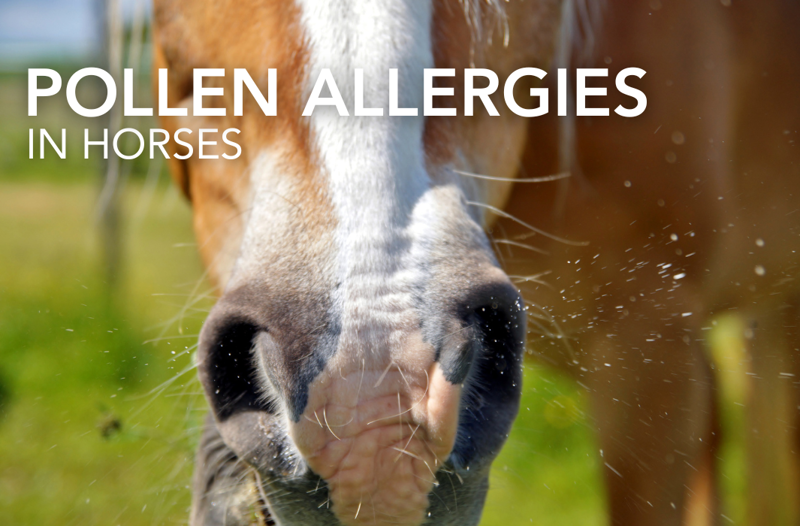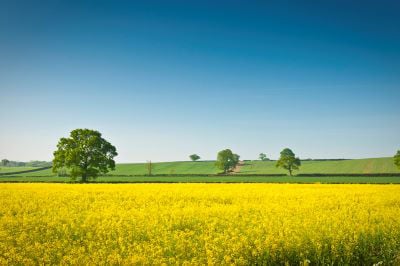Increased levels of pollen during summer months can cause problems for horses and humans alike. If you’ve ever had hay fever, you’ll know exactly how that feels! Similarly for horses, the pollens released by grasses, plants and trees can cause an allergic response leading to coughing, headshaking, lethargy, poor performance and occasionally swollen and gunky eyes. All these symptoms can result in issues with concentration and behaviour.
How a Horse’s Immune System Reacts to Pollen
The function of pollens is to fertilise other plants, but as they’re carried in the wind or through contact (getting brushed off the plant onto our clothes, tack etc.) they can instead land on our horse’s skin, mouth and eyes or be inhaled into the upper airways.
The horses’ upper airways are lined with tiny hairs and a thin layer of mucous which, under normal circumstances, acts as a great first line of defence to trap and remove any pathogens or foreign substances entering the body.
However, in a horse who is allergic to pollen the presence of these particles causes the immune system to mount a response to, what it considers to be, a harmful attack. At a cellular level, this triggers production of Immunoglobulin E (IgE) which then prompts the release of histamine, a molecule that increases blood flow to the affected areas and blood vessel permeability, as well as increasing the sensitivity of nerve endings.
This cascade of immune responses can occur within 15 minutes of exposure to the allergen, and creates the typical symptoms of head shaking, coughing and nasal discharge.
In addition another key player in the immune response, mast cells, are also activated and can cause a delayed response, often four to six hours after the original exposure. Typically, mast cells are also more active in the evenings, releasing more of their stored histamine, which can mean that although the amount of pollen in the air may be lower in the evenings, symptoms can sometimes be worse.
Identifying What Pollens Trigger Your Horse
Normally, there will be one or two specific types of pollen that the horse is allergic to. Keeping an activity and symptom diary (for example, recording what time of day and where you rode along with any symptoms you notice in your horse) may help you identify which pollens are the culprits. Perhaps the symptoms are worse in the evening when you went for a hack around a field with Oilseed Rape that morning, or hacked through a forest with lots of beech trees? You can then try to avoid riding or competing near that particular plant or tree during it’s active pollen season.
Oil seed rape is a common trigger pollen
Management Practices for Horses with Pollen Allergies
Plants tend to release pollens between 5am-10am so, if possible, try to avoid strenuous work between these times in affected horses. The harder a horse is working the more airflow there is through the nose, and as each inhale brings more pollen into the airway, strenuous exercise may worsen symptoms more than light exercise.
Rain can cause pollen to shatter into smaller particles, meaning they are more likely to enter the lung instead of being trapped by the hairs and mucous lining of the upper airways. Keeping your horse stabled during the early morning and during / after adverse weather may benefit your horse.
Other management steps such as wearing a pollen net or face mask may also help ease symptoms.
It is thought that defects in the epithelial barriers (the delicate membranes that line the nostrils and upper respiratory tract) might make horses more susceptible to an allergic response, so anything that helps soothe and support the integrity of these membranes could also help reduce symptoms.

Pollen/ nose nets can help reduce symptoms.
Conclusion:
It can be challenging when your horse is badly affected by pollen, but by taking a targeted approach to managing their pollen allergies, you’ll be better equipped to support their health and comfort throughout these spring and summer months.
If you have any questions or would like any advice, please get in touch with our expert nutrition team, you can call 0800 585525, email [email protected], use the Live Chat function on our website, or send us a DM on social media.



